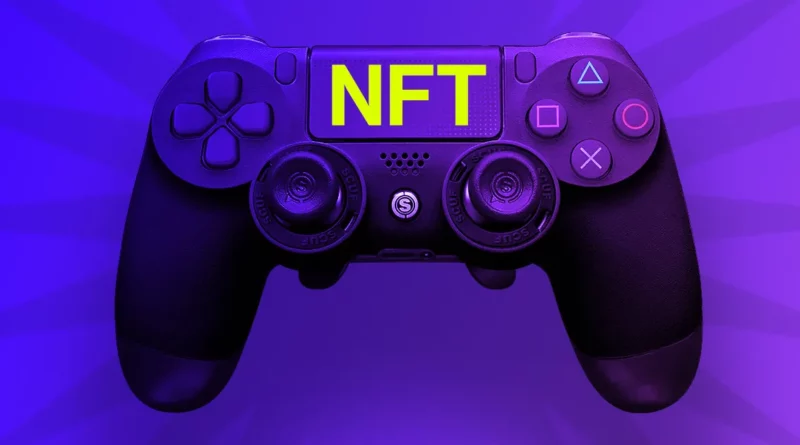NFT Gaming is on the Rise and Here are the Pros and Cons
Non-Fungible Tokens (NFTs) have emerged as unique digital assets built on blockchain technology. Each NFT possesses distinct characteristics and cannot be replicated, making them scarce and valuable in the digital world. NFTs have now found their way into the realm of gaming, transforming how players interact with in-game items and experiences.
The Integration of NFTs in Gaming
The gaming industry has seen a significant integration of NFTs in recent years. Game developers are leveraging blockchain technology to create, trade, and validate ownership of in-game assets, such as skins, characters, weapons, and virtual real estate. This integration has opened up new possibilities for players, allowing them to truly own their digital belongings and even monetize them.
The Growing Popularity of NFT Gaming
The popularity of NFT gaming is on the rise due to its potential to revolutionize the gaming landscape. Players are drawn to the idea of owning rare and valuable in-game items and the opportunity to earn real-world rewards through gameplay. As technology evolves and becomes more accessible, NFT gaming is poised to become a dominant force in the gaming industry.
The Pros of NFT Gaming
In traditional gaming, players spend considerable amounts on in-game purchases, only to have limited rights to use those items. However, as stated by NFT gaming news, blockchain gaming offers true ownership, granting players complete control over their assets. This ownership empowers players to trade, sell, or even lend their valuable NFTs as they see fit, adding a new dimension of value to the gaming experience.
NFT gaming introduces the concept of “play-to-earn,” where players can earn valuable NFTs through gameplay achievements. This system not only incentivizes players to invest more time and effort into their favorite games but also enables them to profit from their skills and accomplishments. Play-to-earn has the potential to bridge the gap between gaming and real-world income generation.
NFTs are built on blockchain networks, making them interoperable across various gaming platforms. This cross-platform integration allows players to use their NFT assets seamlessly in different games, regardless of the developer or gaming ecosystem. Players no longer need to start from scratch in each game, as their valuable assets accompany them wherever they go, enhancing the overall gaming experience.
The Cons of NFT Gaming
While NFT gaming offers exciting opportunities, it also comes with a high barrier to entry. Some players may find it challenging to navigate the complexities of blockchain technology and acquire their first NFTs. Moreover, the cost of acquiring rare and sought-after NFTs can be prohibitive, creating an uneven playing field for those with limited resources.
The energy consumption associated with blockchain networks, especially in proof-of-work systems, raises environmental concerns. Mining cryptocurrencies and validating transactions can have a significant carbon footprint. As NFT gaming gains popularity, developers must explore more sustainable blockchain solutions to mitigate these environmental impacts.
The unregulated nature of the NFT market can lead to potential manipulation and scams. Price volatility and speculative behavior may occur, affecting the value of NFT assets. Without proper regulations and research through NFT game reviews, players could face financial risks and fraudulent activities within the NFT gaming space.
Regulatory and Ethical Considerations
The use of NFTs in gaming raises copyright concerns, especially when players create and trade fan-made assets based on copyrighted material. Developers must establish clear guidelines and ensure that NFTs do not infringe upon intellectual property rights, protecting both players and content creators.
As NFT gaming evolves, it is essential to foster a fair and inclusive environment for all players. Developers should avoid creating pay-to-win scenarios and design gameplay mechanics that reward skill and dedication rather than financial capabilities. Additionally, steps must be taken to make NFT gaming accessible to a broader audience, including addressing language barriers and user interfaces.
The innovative nature of NFT gaming should be balanced with investor protection. As players invest real money into NFTs, developers should implement transparent systems that ensure asset legitimacy and prevent fraudulent activities. Regulations can play a crucial role in safeguarding the interests of players and investors alike.
NFT gaming presents a revolutionary shift in the gaming industry, offering players new opportunities for ownership, earning potential, and cross-platform experiences. However, challenges such as high barriers to entry, environmental concerns, and market manipulations need to be addressed to ensure the long-term sustainability and ethical development of NFT gaming.
As the technology and regulations continue to evolve, the future of NFT gaming looks promising, promising a dynamic and inclusive gaming landscape shaped by the collective efforts of developers and players alike.


